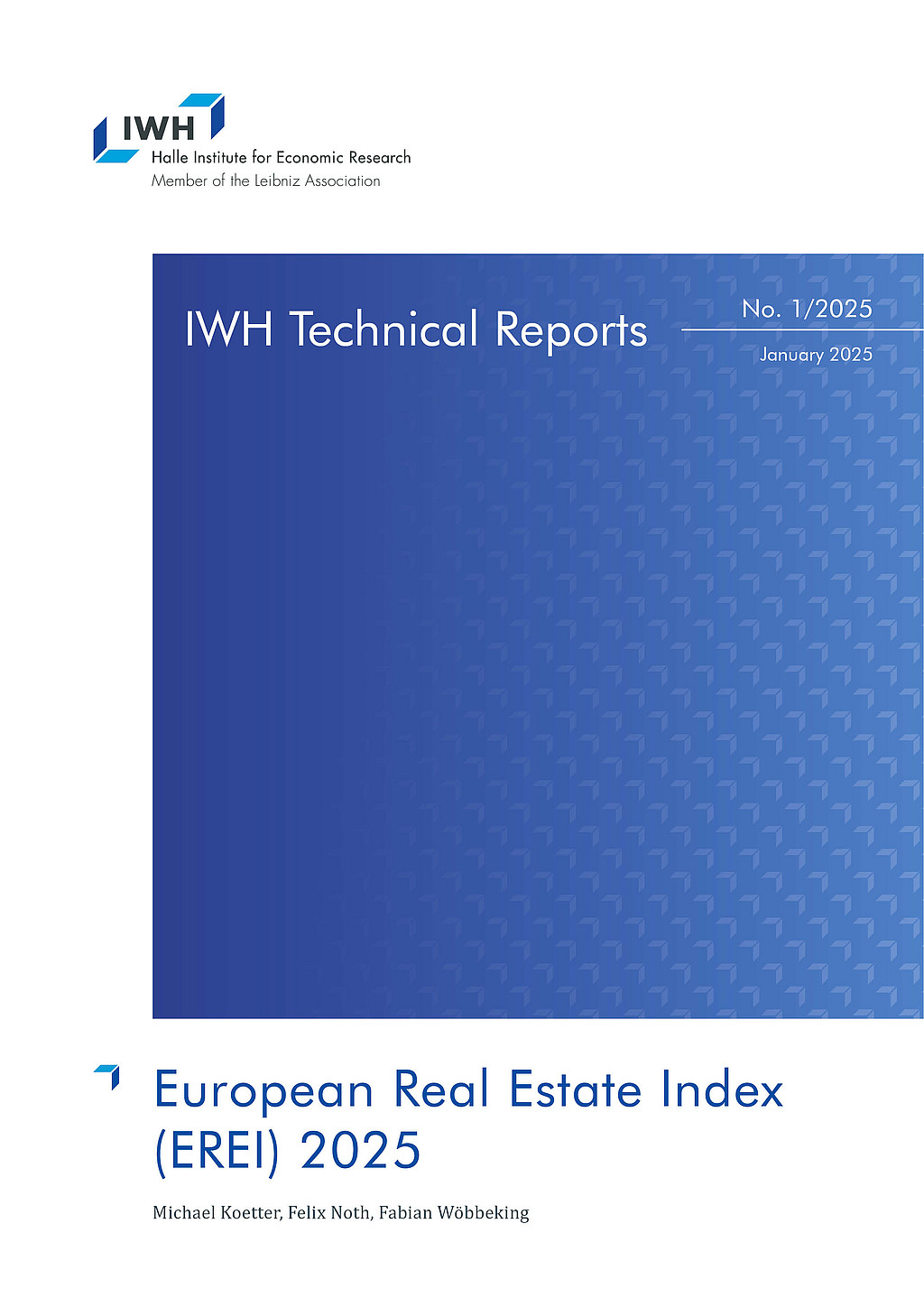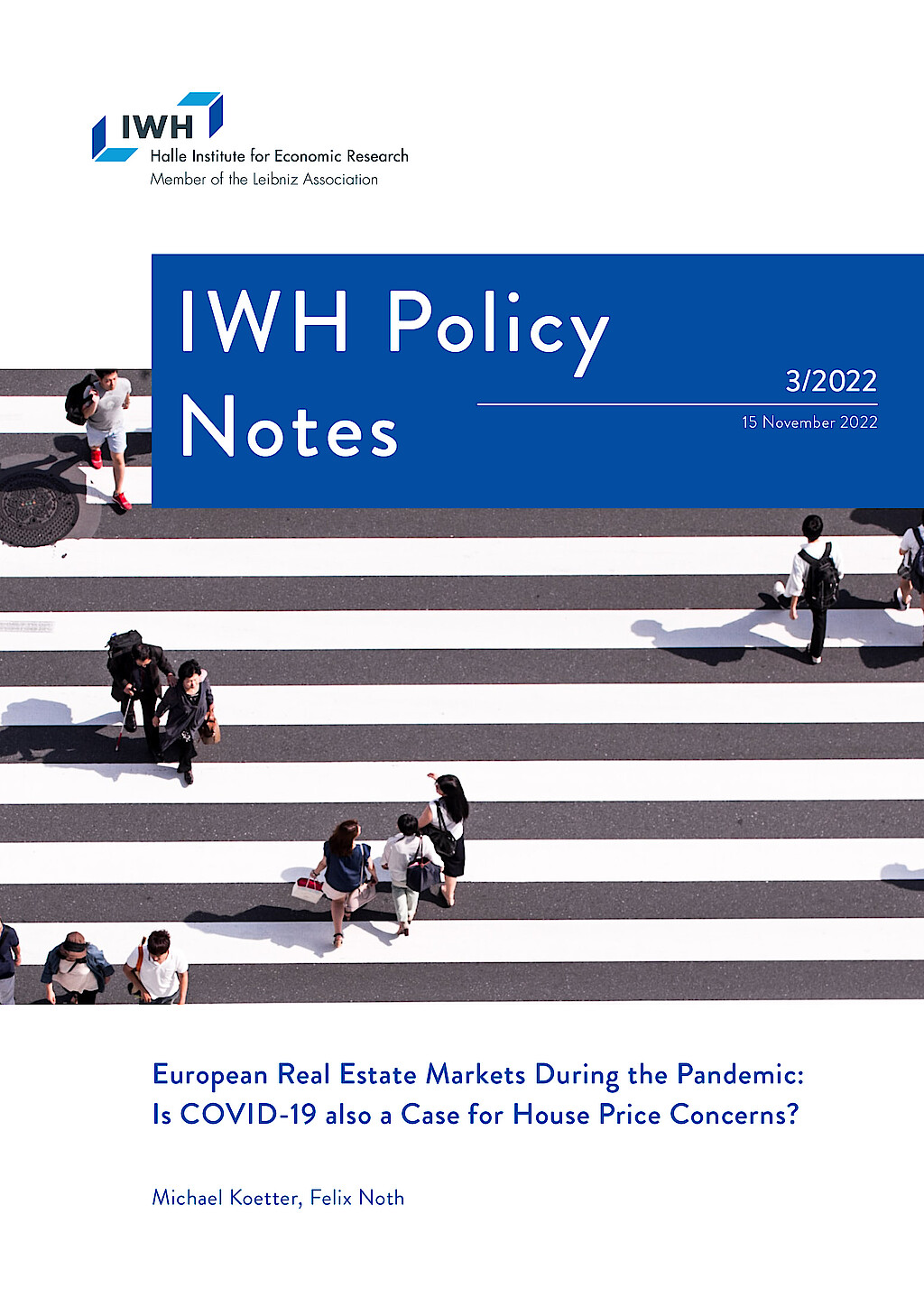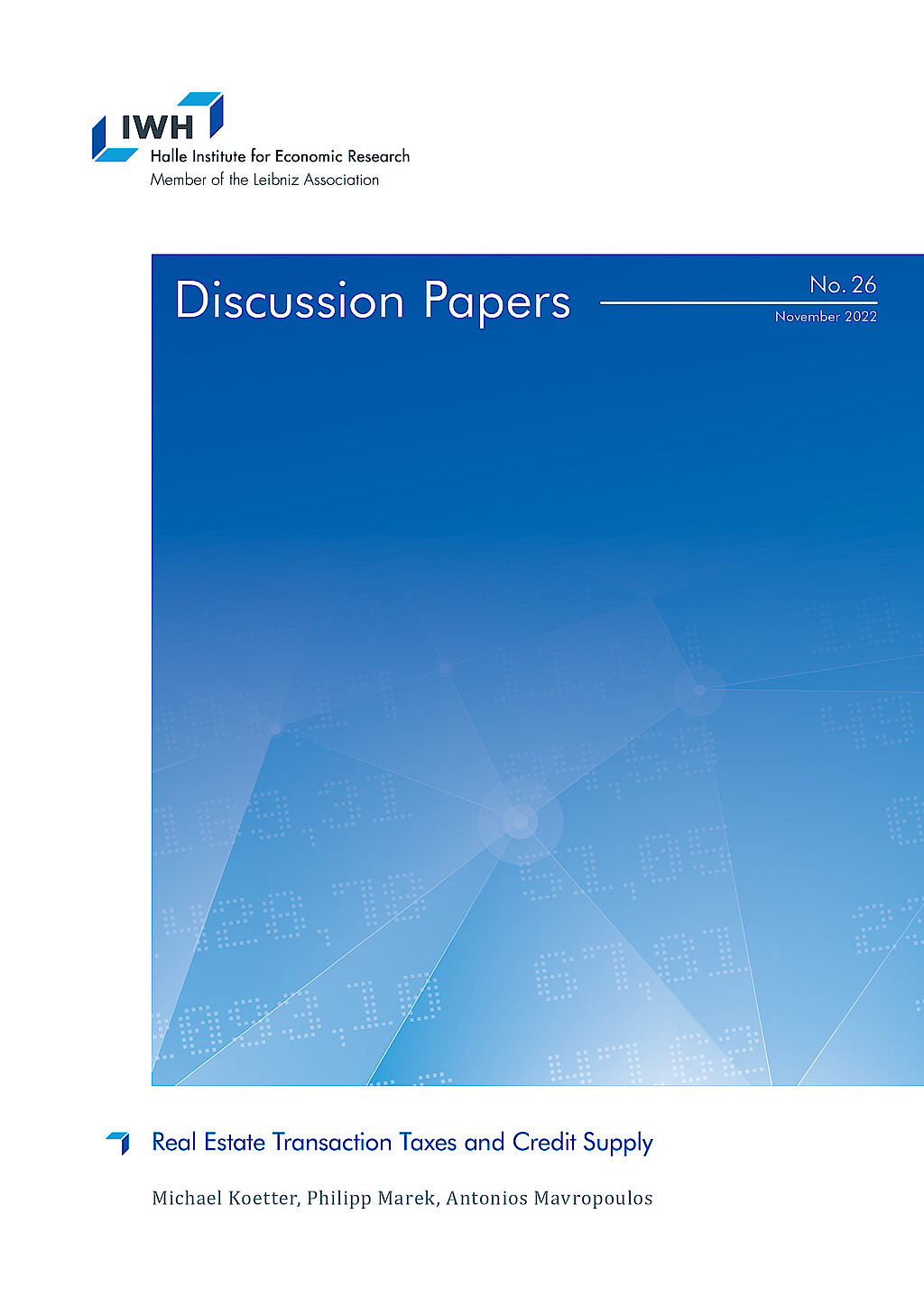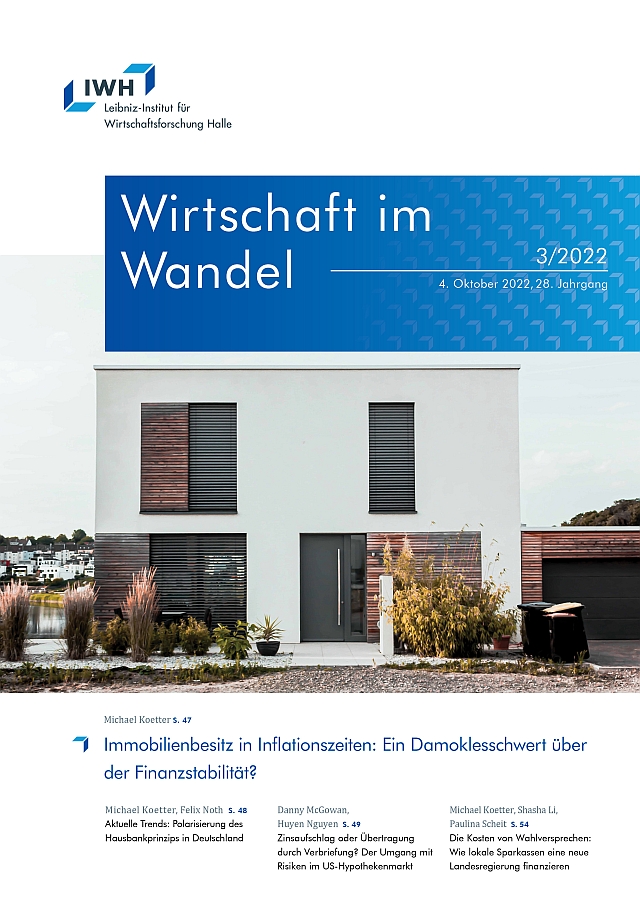IWH European Real Estate Index (EREI)
Der IWH European Real Estate Index ist ein neuer Datensatz, der die Entwicklungen auf dem gesamten europäischen Immobilienmarkt abbilden soll. Neben Angebotspreisen ermöglichen unsere Daten sowohl die Messung der Angebotstiefe (Anzahl der Inserate) als auch der Marktliquidität (Verweildauer). Der Datensatz vereint Daten, die ursprünglich vom IWH stammen, sowie Daten für Deutschland aus einem Projekt des RWI Essen (doi.org/10.7807/immo:redx:v3). Die auf NUTS-3-Ebene aggregierten EREI-Daten stehen in monatlicher Frequenz zur Verfügung. Weitere Informationen zur Erhebungsmethodik und Abdeckung finden Sie im IWH Technical Report 1/2025.
DOI: 10.18717/erei1
Daten und Methoden

European Real Estate Index (EREI) 2025
in: IWH Technical Reports, Nr. 1, 2025
Abstract
<p>This Technical Report documents the construction and coverage of the IWH European Real Estate Index (EREI). Since 2018, we have used machine-learning methods to collect monthly listings of residential real estate available for sale or rent in up to 20 European countries. The Technical Report documents the cleaning and selection process and describes the data regarding coverage, moments, and frequencies to construct the EREI.</p>
Datenzugang
Das IWH stellt diese Daten externen Forscherinnen und Forschern ausschließlich für nicht-kommerzielle Forschungszwecke zur Verfügung. Die Nutzung wird auf Antrag gewährt.
Bitte füllen Sie dazu den Antrag zur Datennutzung mit Ihren persönlichen Angaben und einer detaillierten Forschungsskizze aus, welche gleichzeitig das Forschungsinteresse dokumentiert. Bei Erfüllung der formalen Voraussetzungen werden wir einen Nutzungsvertrag mit Ihnen abschließen. Bitte beachten Sie dazu auch die geltende Benutzerordnung.
Für Rückfragen und weitere Informationen wenden Sie sich bitte an fdz@iwh-halle.de.
Publikationen

European Real Estate Index (EREI) 2025
in: IWH Technical Reports, Nr. 1, 2025
Abstract
<p>This Technical Report documents the construction and coverage of the IWH European Real Estate Index (EREI). Since 2018, we have used machine-learning methods to collect monthly listings of residential real estate available for sale or rent in up to 20 European countries. The Technical Report documents the cleaning and selection process and describes the data regarding coverage, moments, and frequencies to construct the EREI.</p>

European Real Estate Markets During the Pandemic: Is COVID-19 also a Case for House Price Concerns?
in: IWH Policy Notes, Nr. 3, 2022
Abstract
We use a new database on European real estate purchase and rental prices – the IWH European Real Estate Index – to document the relationship between staggered COVID-19 dynamics and real estate prices in 14 EU countries between January 2020 and December 2021. For most countries, we find no statistically significant response of monthly purchase and rental prices due to an increase of regional COVID-19 cases. For the UK we find that more COVID-19 cases depressed both purchase and rental prices significantly, but the economic magnitude of effects was mild during this sample period. In contrast, rents in Italy increased in response to hiking COVID-19 cases, illustrating the importance to consider heterogeneous crisis patterns across the EU when designing policies. Overall, COVID-19 dynamics did not affect real estate values significantly during the pandemic, thereby mitigating potential financial stability concerns via a mortgage lending channel at the time.

Real Estate Transaction Taxes and Credit Supply
in: IWH Discussion Papers, Nr. 26, 2022
Abstract
We exploit staggered real estate transaction tax (RETT) hikes across German states to identify the effect of house price changes on mortgage credit supply. Based on approximately 33 million real estate online listings, we construct a quarterly hedonic house price index (HPI) between 2008:q1 and 2017:q4, which we instrument with state-specific RETT changes to isolate the effect on mortgage credit supply by all local German banks. First, a RETT hike by one percentage point reduces HPI by 1.2%. This effect is driven by listings in rural regions. Second, a 1% contraction of HPI induced by an increase in the RETT leads to a 1.4% decline in mortgage lending. This transmission of fiscal policy to mortgage credit supply is effective across almost the entire bank capitalization distribution.

Kommentar: Immobilienbesitz in Inflationszeiten: Ein Damoklesschwert über der Finanzstabilität?
in: Wirtschaft im Wandel, Nr. 3, 2022
Abstract
Zu Beginn meines Studiums bot sich mir überall das gleiche Schauspiel: lange Warteschlangen anderer „Frischlinge“ vor dem neu renovierten WG-Zimmer samt modernstem 56k-Modem, fußläufig zu Uni und Lieblings-Café gelegen, mit happiger Miete zwar, aber irgendwie noch im finanziellen Lösungsraum. Eifrig bereitete ich tolle Argumente vor, warum gerade ich der optimale WG-Zuwachs sei, bevor ich mich einreihte. Schade, dass es dann meist jemand anderes wurde, aber nur kein Neid! Schade aber auch, dass die Suche nach einem Dach über dem Kopf für viele Menschen auch später frustrierend bleibt. Ein bezahlbares Zuhause zu suchen bleibt vielerorts ein von der Spaßsteuer befreites Unterfangen, ob nun für Berufseinsteiger oder die vierköpfige Familie, ob nun in Leipzig oder Köln.

Aktuelle Trends: Immobilienpreise in Deutschland steigen seit Pandemiebeginn im EU-Vergleich am stärksten
in: Wirtschaft im Wandel, Nr. 1, 2022
Abstract
Seit dem Beginn der Pandemie sind die Angebotspreise für privat genutzte Immobilien EU-weit um ein Viertel, in Deutschland bis März 2021 um 45% gestiegen. Die Preisdynamik ist auch außerhalb der Ballungszentren beachtlich.
Ihr Kontakt

Forschungsgruppenleiter
Für Rückfragen stehe ich Ihnen gerne zur Verfügung.
+49 345 7753-851 Anfrage per E-Mail


